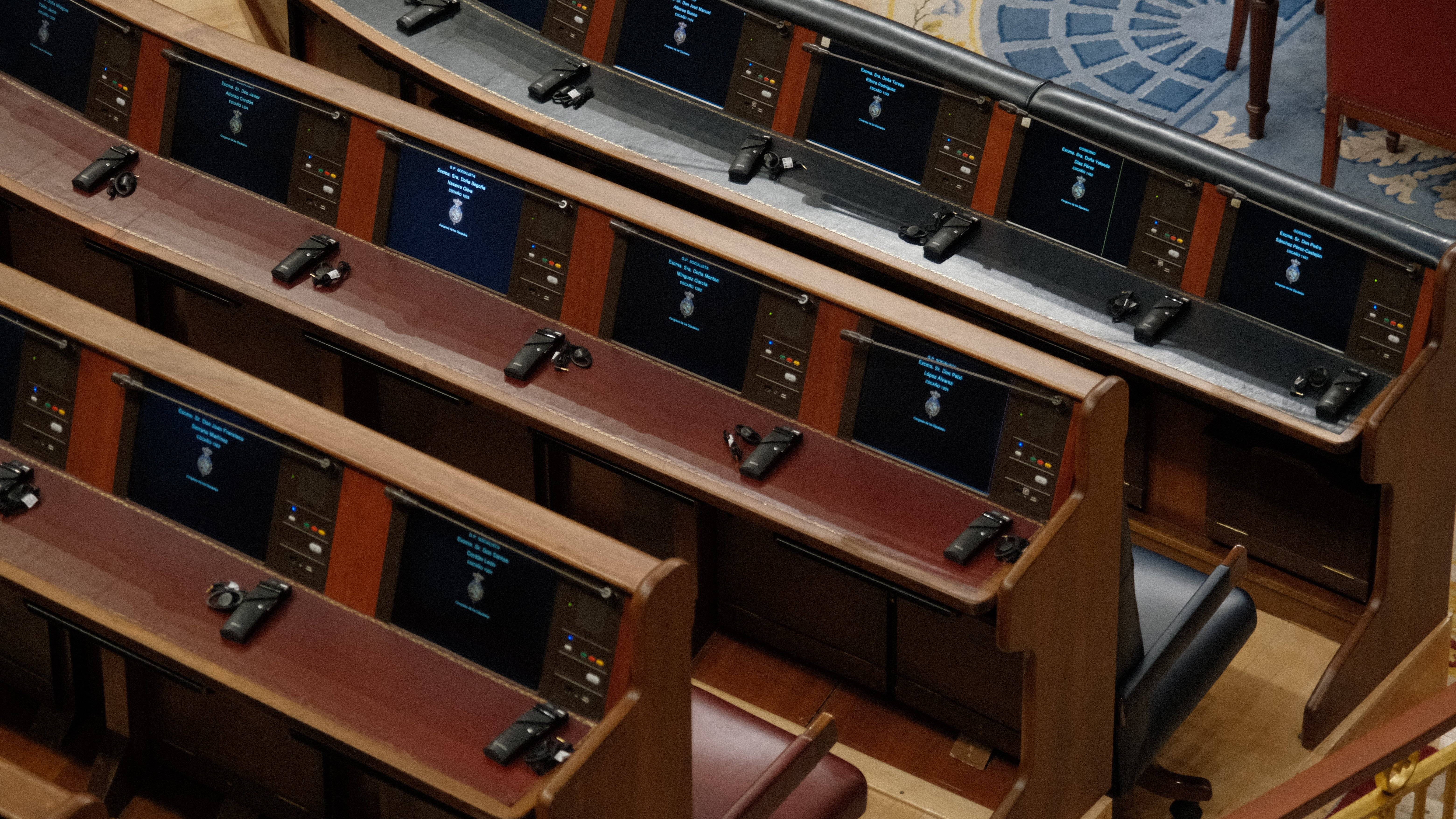It's now definitive. Spain's Congress of Deputies has this Thursday passed the reform of its regulations to allow Catalan, Aranese, Basque and Galician to be used with full normality. The 180 votes in favour of the PSOE, Sumar, Catalan Republican Left, Together for Catalonia, EH Bildu, the PNV, BNG and the Canarian Coalition prevailed over the 170 votes against of the PP, Vox and UPN. There was one PP deputy who made a mistake when voting and pressed the green button instead of the red one. This Thursday's debate, however, no longer revolved entirely around linguistic normalization. Statements by Pedro Sánchez on Wednesday about the amnesty, and the closeness of the investiture bid - everything indicates that it will fail - by the PP's Alberto Núñez Feijóo has caused a debate about language to turn its attention to the possibility of exonerating pro-independence activists over action taken during the Catalan 'process'.
It was, already, the second time that it was possible to speak Catalan in a plenary session of the Congress of Deputies - the second time, that is, without risking interruptions from the speaker or expulsions from the chamber. The congressional Bureau agreed last week that the extension of language rights would be tested in the very debate in which the proposed change was to be considered. With this agreement and with the passing of the new rules this Thursday, it will also be possible to hear Spain's four co-official languages in the debate over the investiture of Núñez Feijóo as new Spanish prime minister, scheduled for next Tuesday and Wednesday.
The reform of the rules of the Congress of Deputies is now definitive, since it does not have to pass through the Senate. The explanation for that is straightforward: it is not because of the urgency taken over the procedure, but because it is simply a modification of the regulations of the very chamber which is debating it. So there is no need to wait for the approval or possible amendments which the upper house can propose for normal legislation.
PNV amendment approved: co-official language version of all laws
The first parliamentary group to present an amendment was the Basque Nationalist Party (PNV), which wanted to incorporate a provision to ensure that authentic versions of laws that are passed are produced in all co-official languages other than Spanish. It was Joseba Andoni Agirretxea, the same parliamentarian who on Tuesday made the first full speech in Basque in the lower house, who argued this proposal. With 178 votes in favour, the amendment presented by the PNV went ahead and has thus added one more point to linguistic equality.
PP and Vox fail in attempt to reject the changes
Later, came the consideration of the "amendments in full" - that is, full rejections - presented by Vox and the PP. The extreme right party also proposed its own reform of the Congress of Deputies rules, but in the opposite direction of the proposal presented by the PSOE, Sumar, ERC, PNB, Bildu and BNG. The ultra-right wanted to force parliamentarians to use Spanish in all parliamentary activities. At the same time, Vox presented a letter to the Bureau this Wednesday to find out how much the incorporation of the new languages in the lower house will cost.
Subsequently, the PP spokesperson, Borja Sémper, came out to defend his party's amendment in full, which also intended to block the regulation change. The party considers that a modification of this type must be carried out with the "consensus" of the lower house's Rules Commission. The PP argues that the Congress of Deputies is located in Madrid, which is why, in their opinion, it makes no sense to speak the languages of other territories, which are not languages of the Spanish capital. Both the PP's and Vox's amendments were in the end rejected.

